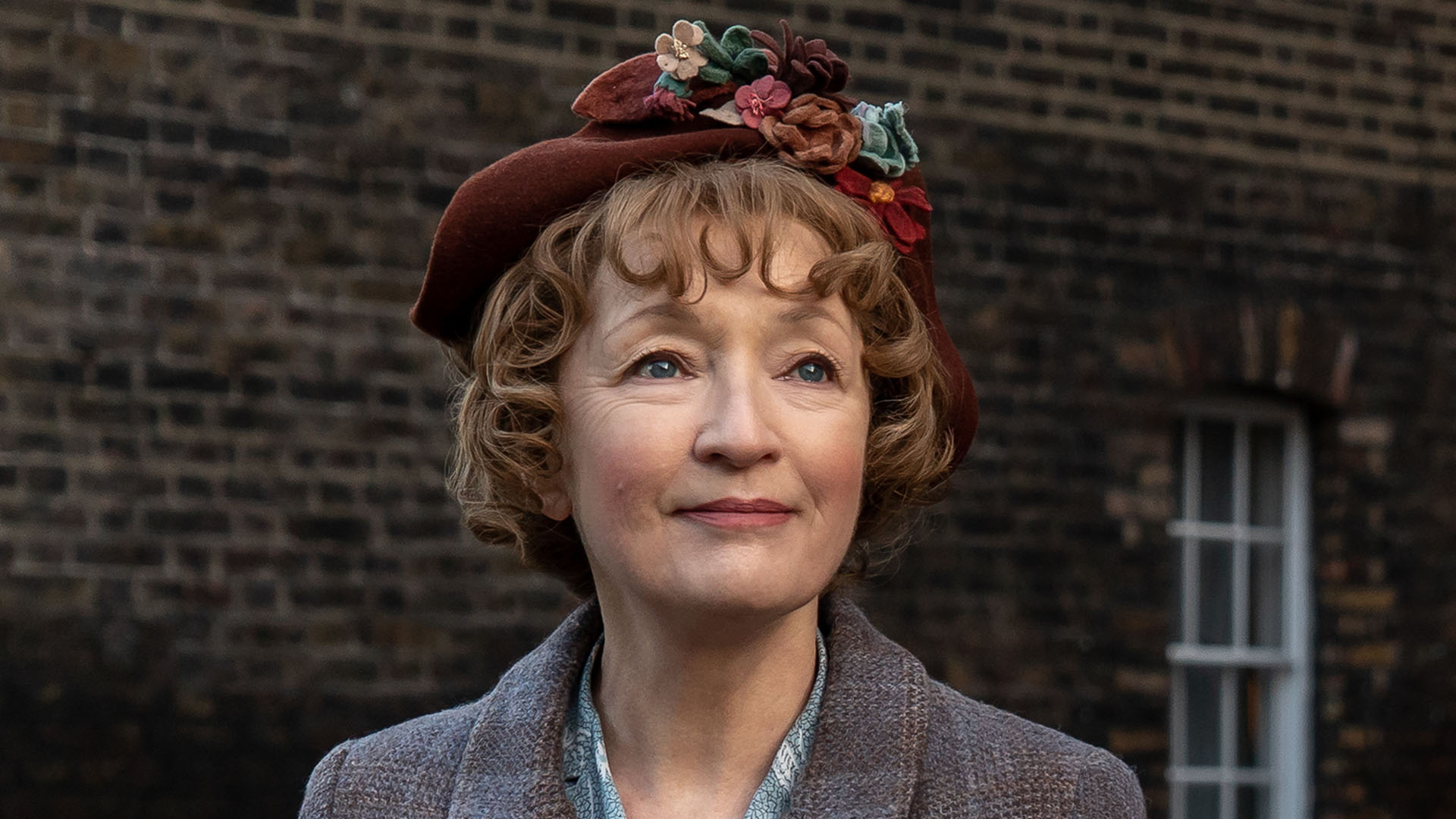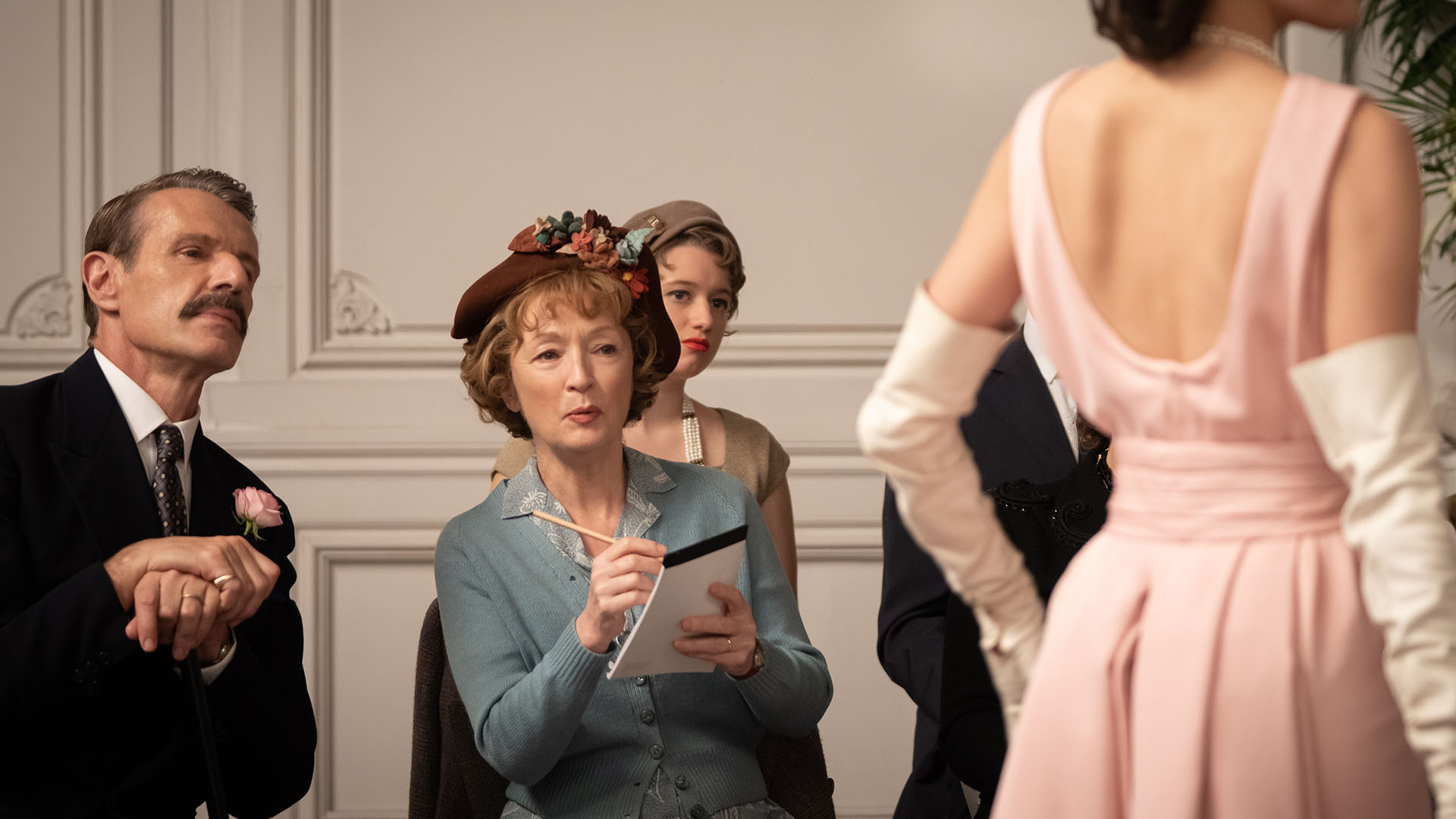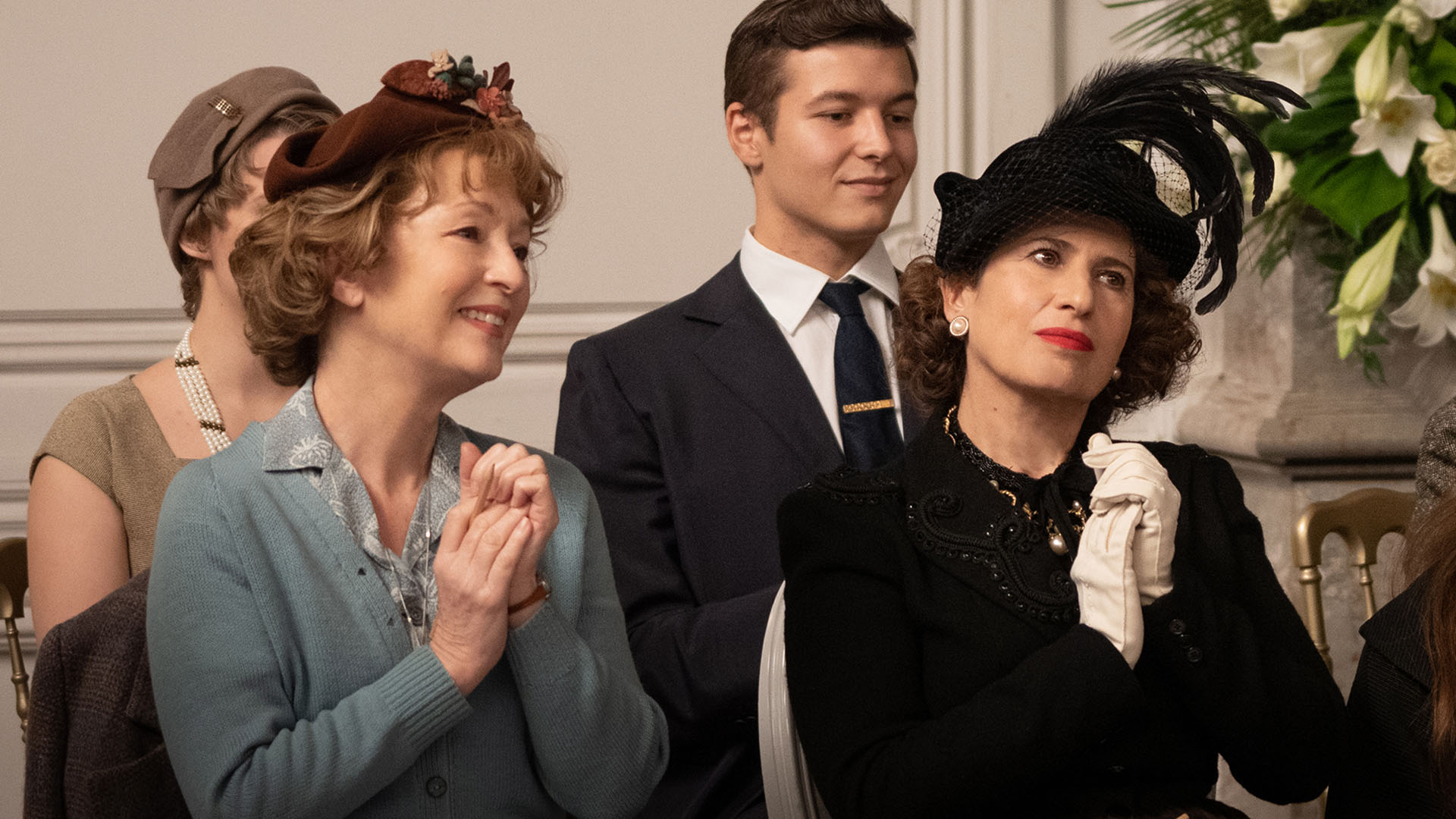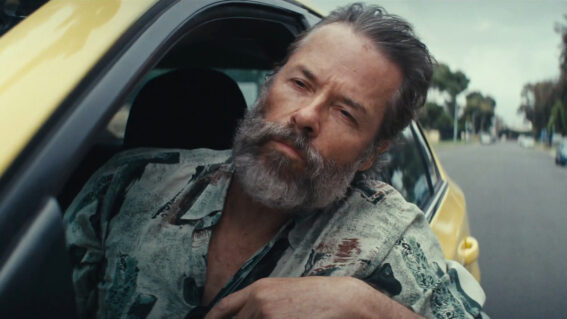The joy of unassuming ‘tea and biscuits’ movies like Mrs. Harris Goes to Paris

A widowed cleaning lady in 1950s London chases her dream of owning a couture Dior dress in Mrs. Harris Goes To Paris. Amelia Berry assesses its shockingly hopeful, cosy wholesomeness in a world that is increasingly blockbuster or bust.
Mrs. Harris Goes to Paris
In the first half of the twentieth century, before the widespread adoption of colour film and TV, people used to dream in black and white. At least, that’s what some studies have suggested. Whether or not it’s actually true, it’s illustrative of a broader point that certainly is true. The media we consume guides our imaginations, delineating the borders of possibility, gently putting its technicolour finger on the scales of discourse. With more and more of our movies and television being produced by fewer and fewer companies for an increasingly homogenous audience, it sometimes starts to feel like our collective imagination is being led inexorably towards US military-industrial complex spon-con and Benedict Cumberbatch’s funny little beard.
All of this is a wildly overblown way of saying that stepping into a theatre in 2022 and seeing a film about a cleaning lady going on a fairly modest adventure feels like a genuine event. The film in question is of course Mrs. Harris Goes To Paris, a new adaptation of Paul Gallico’s 1958 novel of the same name (minus the H) starring Lesley Manville and Isabelle Huppert. It’s the story of a widow in 1950s London who travels to Paris to buy a wildly expensive and beautiful Christian Dior dress, the opposition that she faces, the friends she makes. It’s about fashion, class, and existentialism! Well, sort of.
Really, it’s difficult to say much about Mrs. Harris Goes To Paris without feeling like you’re overselling it. Precisely what makes it so exciting to see amongst the kind of high concept, high impact cinema we’re surrounded by is that it’s just so low-key. It’s a tea and biscuits movie. A movie you go to when your auntie is visiting from out of town. It’s a movie that’s about a very ordinary woman, doing something exciting, daring, and foolish, without any ponderous moral quandaries or tragic consequences.
It’s a kind of cosy wholesomeness that seems increasingly reserved for murder mysteries and films about Peruvian bears. But by speaking to adult emotions and experiences without the trappings of fantasy or gloomy detective genre convention, Mrs. Harris is moving and captivating in ways that other media just isn’t really interested in. A film about an older, working-class woman reaching out and taking the thing she wants, despite society’s sneering, feels deeply satisfying. It’s not really that it’s profound, or subtle, or hugely original, it’s that it feels specific, direct, and emotionally real.

The upshot of all these grown-up warm and fuzzies is that Mrs. Harris Goes To Paris is a shockingly hopeful movie. While there have been other movies this year that talk about class (looking at you Triangle of Sadness), they mostly focus on the grim excesses of the wealthy. When other more light and fluffy movies talk about serious issues, it tends to be a wink or a nudge like Paddington 2 and prisons. Meanwhile, watching Mrs. Harris with its TWO successful strikes and a climatic scene where Harris declares that she won’t be treated like scum, it’s hard not to feel like a better world is possible.
Mrs. Harris herself spends much of the film pushing at the barriers of the possible. Seeing a Christian Dior dress in the home of a rich woman she cleans for, she decides that she must have one for herself, with the other characters expressing disbelief and disapproval right up to the point she shows up wearing the dress. Her friends André and Natasha cannot see each other as more than just a stuffy accountant and an unreachable model until Mrs. Harris brings them together. Claudine, the Dior director, is running the business into the ground because she cannot imagine it working any other way. Who should save the day? Only Mrs. Harris (with the help of some industrial action and clever André).
At one of the film’s deepest emotional low points, the charming Marquis de Chassagne reveals that the interest he’s taken in Mrs. Harris is because she reminds him of the cleaning lady from his old boarding school, Mrs. Mops. This moment is so emotionally gutting, not because we really wanted to see them get together, but more because it shows him to be so narrow-minded. He simply cannot see Mrs. Harris outside of this broad caricature of her social role. He cannot really engage with her as a human being. If you were living in Paris in the 1950s, you might say the whole thing reeks of bad faith. (Sartre, existentialism, etc. etc.)

Of course, it takes a lot more than themes to make a film worth watching. Mrs. Harris Goes To Paris is blessed with a stunningly layered performance by Lesley Manville in the title role, and joyously scenery-chewing turns from Isabelle Huppert as the Dior director, and Lambert ‘The Merovingian’ Wilson as the Marquis. The costuming and set design are gorgeous, and the script draws its memorable characters with deftness and efficiency.
At this point, it would be tempting to say something like “Mrs. Harris Goes To Paris is the missing third term which draws together Phantom Thread and I, Daniel Blake” but it just wouldn’t be true. It’s nothing so high-minded as that. Mrs. Harris is an ordinary, unassuming movie in a world that is increasingly blockbuster or bust. And so long as the majority of us are just ordinary people, striving to achieve our little bit of happiness between our hours of drudgery, there’s an unassailable comfort in movies like Mrs. Harris. One that can’t be matched by the biggest explosion or the cheekiest little CGI creature.
It’s worth cherishing the little things, alongside the big things. And with a few more films like this, who knows? Maybe instead of fighter jets and Scandinavian cults that are a metaphor for trauma, we’ll start dreaming about cups of tea, joyously improbable adventures, and the power of organised labour.





















